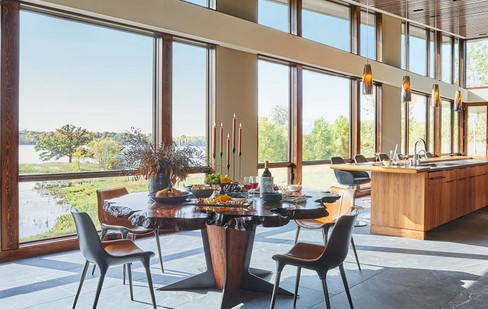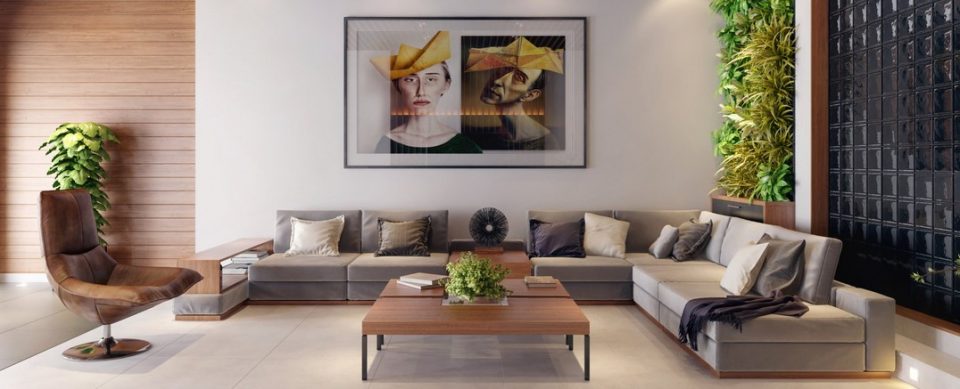 Window Wonders: Embracing the Elegance of Floor-to-Ceiling Windows is a guide to help homeowners and interior designers alike to make the most of their floor-to-ceiling windows. This book provides an in-depth look at the various design options available for these windows, from the materials used to the treatments and accessories that can be used to enhance the look and feel of the space. It also offers advice on how to maximize the natural light that these windows bring into the home, as well as tips on how to make the most of the views that they offer. With this book, readers will be able to create a beautiful and inviting space that is both functional and aesthetically pleasing.
Window Wonders: Embracing the Elegance of Floor-to-Ceiling Windows is a guide to help homeowners and interior designers alike to make the most of their floor-to-ceiling windows. This book provides an in-depth look at the various design options available for these windows, from the materials used to the treatments and accessories that can be used to enhance the look and feel of the space. It also offers advice on how to maximize the natural light that these windows bring into the home, as well as tips on how to make the most of the views that they offer. With this book, readers will be able to create a beautiful and inviting space that is both functional and aesthetically pleasing.
How to Maximize Natural Light with Floor-to-Ceiling Windows
Maximizing natural light with floor-to-ceiling windows is an effective way to bring the outdoors into a home or office space. Floor-to-ceiling windows can provide a bright, airy atmosphere and create a sense of openness. To maximize the amount of natural light entering a space, there are several design considerations to take into account.
First, the orientation of the windows should be taken into account. Windows that face south will receive the most direct sunlight, while windows facing east and west will receive more indirect light. Additionally, the size of the windows should be considered. Larger windows will allow more light to enter the space, while smaller windows will provide less light.
Second, the type of window should be chosen carefully. Low-E windows are designed to reduce the amount of heat that enters a space, while still allowing natural light to pass through. This type of window is ideal for areas that experience extreme temperatures. Additionally, tinted windows can be used to reduce the amount of glare and heat entering a space.
Third, the placement of the windows should be considered. Windows should be placed in areas that will receive the most sunlight, such as near the top of a wall or near the ceiling. Additionally, windows should be placed away from trees or other obstructions that could block the light.
Finally, the use of window treatments should be considered. Window treatments such as blinds, shades, and curtains can be used to control the amount of light entering a space. Additionally, window treatments can be used to reduce glare and heat.
By taking these design considerations into account, floor-to-ceiling windows can be used to maximize the amount of natural light entering a space. This can create a bright, airy atmosphere and provide a sense of openness.
Designing a Home with Floor-to-Ceiling Windows: Tips and Tricks for Creating a Beautiful Space
Designing a home with floor-to-ceiling windows can be a great way to create a beautiful and inviting space. Floor-to-ceiling windows can provide an abundance of natural light, create a sense of openness, and offer stunning views of the outdoors. However, there are a few tips and tricks to consider when designing a home with floor-to-ceiling windows.
First, it is important to consider the orientation of the windows. Floor-to-ceiling windows should be placed in areas that will receive the most natural light, such as facing south or east. This will ensure that the home is well-lit and that the views are maximized. Additionally, it is important to consider the climate when selecting window materials. For example, in colder climates, double-paned windows are recommended to help keep the home warm.
Second, it is important to consider the window treatments. Floor-to-ceiling windows can be a great way to bring in natural light, but they can also be a source of glare and heat. To reduce glare and heat, it is important to select window treatments that are designed to block out the sun’s rays. Additionally, window treatments can be used to add a decorative touch to the space.
Finally, it is important to consider the furniture placement. Floor-to-ceiling windows can create a sense of openness, but they can also make the space feel overwhelming. To create a more balanced look, it is important to select furniture that is scaled to the size of the windows. Additionally, it is important to consider the placement of the furniture in relation to the windows. For example, furniture should be placed away from the windows to avoid blocking the natural light.
By following these tips and tricks, homeowners can create a beautiful and inviting space with floor-to-ceiling windows. With careful consideration of the orientation, window treatments, and furniture placement, homeowners can create a space that is both functional and aesthetically pleasing.Window Wonders is a great way to bring the beauty of nature into your home. Floor-to-ceiling windows provide an unobstructed view of the outdoors, allowing you to enjoy the beauty of nature from the comfort of your own home. With the right design and installation, you can create a stunning and unique look that will add value to your home. Window Wonders is a great way to embrace the elegance of floor-to-ceiling windows and bring the beauty of nature into your home.
